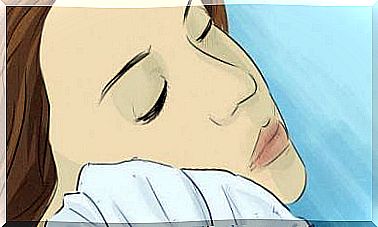Do You Know The Side Effects Of Loneliness?
When it’s a choice, loneliness can be beneficial, but when you experience it, it can lead to anxiety and even self-esteem issues. It is essential to alternate moments alone and activities in society.

Sometimes being alone is a necessity. There are so many external stimuli that we need to find ourselves with ourselves, which we think is the best option. And it is. But is loneliness good when it extends over time?
If you are the type of person who enjoys the solitary life a lot, you have surely been told that this attitude is not very healthy. Is it true ?
Yes, in part. However, it is also certain that loneliness brings us benefits. As we said, it is necessary for us to know what we are feeling, to know ourselves.
In addition, these moments are important for quietly thinking about the present moment and making decisions accordingly.
We usually get carried away by events, so much so that when we stop we realize that we are not where we would like to be.
It happens because we don’t have enough room to think about what is happening in our life.
However, as we have discussed, things change when the situation continues. In this case, the side effects of loneliness can become serious if we don’t pick up the signals that something strange is happening to us.
This is why it is important that you know their consequences so that you can determine when you are dealing with loneliness well or not.
What are the side effects of loneliness
The distortion of reality

Do you know the expression “four eyes see better than two”? As is the case with most proverbs, it has its share of truth.
When we speak with others, what we do is exchange different points of view. It helps us compare what we perceive with what others see.
If you are used to chatting, you will have noticed that it is not uncommon for external impressions to help us moderate our opinions.
What happens with loneliness is that we miss this information. Therefore, we risk being blinded by our own ideas, so that we construct a distorted view of the world.
This is what causes us to think of life in extreme terms, and we tend to generalize.
For example, if a coworker hasn’t greeted you when you arrive at work, you start ruminating, and at the end of the day you conclude that he has something against you.
But if you had asked them, or if you had spoken to another colleague, they might have given you a much more reassuring explanation.
Anxiety is also a side effect of loneliness

The previous example is just one of many. Now think about all the similar situations that occur in 24 hours.
Multiply them by a week, and so on: how many times would you think someone hates you?
This state of continued mistrust can only lead to a scenario of more or less mild anxiety.
Moreover, it gets worse when these distorted ideas also refer to oneself.
All you have to do is make two mistakes, at home or at work, and suddenly phrases like “I’m useless” start popping up in your mind.
So, you don’t trust others, you don’t trust yourself, you don’t talk to anyone who can boost your self- esteem, or change what you think about the rest.
Anxiety kicks in, intensifying the distortions, and then a wheel that is very difficult to stop begins to turn.
The Depression

If we add up isolation, widespread mistrust and anxiety, the result is lack of hope and loss of meaning in life.
When everything you see is negative and you can’t find any kind of positive stimulation, living becomes very complicated.
Even though your job is important to you, deep down, happiness is linked to your relationship with the world.
This is why digital social networks have been so successful. We need to tell what is happening to us, how much fun we had, but also how bad we are, or that the last restaurant we went to was amazing.
This way of reliving events to savor them again or to feel accompanied in our pain is essential for us.
However, these side effects of loneliness appear when it is not a choice, but when it is imposed.
Consequently, the ideal is to combine moments of solitary meditation, reflection or distractions with social interactions other than at work, whether outside or at home.









